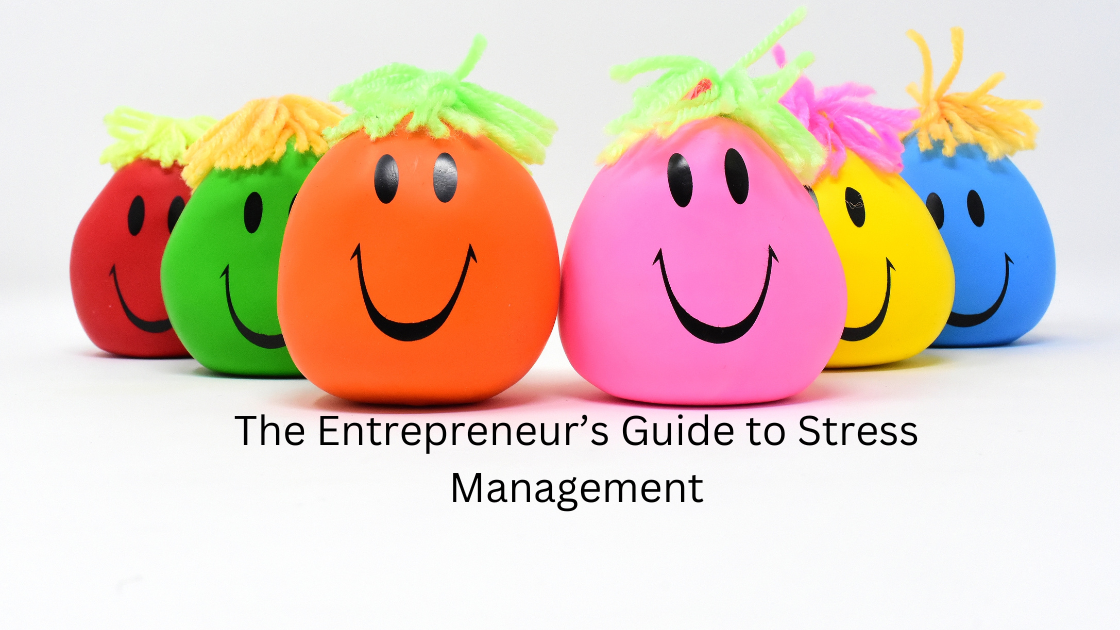Entrepreneurship is an exhilarating journey, filled with opportunities, challenges, and the constant pursuit of growth. However, with great ambition comes great responsibility, and the pressures of running a business can quickly turn into stress if not managed effectively. The ability to handle stress is not just about maintaining well-being—it’s essential for making clear decisions, fostering creativity, and sustaining long-term success.
Stress in entrepreneurship often stems from the unpredictability of business, financial risks, high expectations, and the need to juggle multiple responsibilities. Deadlines, competition, and the pressure to innovate can create an environment where stress becomes a constant companion. Left sunchecked, it can lead to burnout, anxiety, and even physical health issues, ultimately affecting both business performance and personal life.
Successful entrepreneurs recognize that managing stress is not about eliminating challenges but about developing strategies to navigate them effectively. A crucial step in this process is self-awareness—understanding personal stress triggers and recognizing the early signs of burnout. Identifying what causes stress, whether it’s financial uncertainty, work overload, or difficult decision-making, allows entrepreneurs to take proactive steps to mitigate its impact.
One of the most effective ways to combat stress is by establishing routines that promote balance and structure. The unpredictable nature of entrepreneurship makes it tempting to work around the clock, but setting boundaries and maintaining a routine can create stability. Allocating specific hours for work, exercise, family, and personal time ensures that stress does not consume every aspect of life. Consistent habits, such as starting the day with mindfulness, planning tasks in advance, or taking breaks, contribute to better focus and reduced anxiety.
Delegation and outsourcing are also powerful tools for stress management. Many entrepreneurs fall into the trap of trying to do everything themselves, believing that their business depends entirely on them. However, building a strong team, trusting employees, and outsourcing non-essential tasks free up time and mental energy to focus on high-impact activities. Learning to let go of minor details and prioritizing strategic decision-making can significantly reduce stress levels.
Physical well-being plays a significant role in managing stress. Exercise, proper nutrition, and adequate sleep are not luxuries but necessities for maintaining mental resilience. Engaging in physical activity, whether through regular workouts, yoga, or even simple walks, helps reduce stress hormones and improve mood. Similarly, fueling the body with the right foods and ensuring sufficient rest enhance cognitive function and emotional stability, allowing entrepreneurs to tackle challenges with a clear mind.
Mental and emotional well-being are equally important. Practicing mindfulness, meditation, or even deep breathing exercises can help entrepreneurs stay grounded and present in the moment. Engaging in hobbies, spending time with loved ones, and disconnecting from work occasionally serve as essential resets. Seeking mentorship or talking to a trusted advisor provides perspective, helping to navigate challenges without feeling overwhelmed.
Embracing a mindset of adaptability and resilience is another crucial aspect of stress management. Challenges and failures are inevitable in business, but the way entrepreneurs respond to them determines their overall well-being. Viewing setbacks as learning experiences rather than personal failures helps shift the focus from stress to growth. A problem-solving approach, combined with a willingness to adapt and pivot when necessary, reduces frustration and keeps stress from becoming paralyzing.
Entrepreneurship is a marathon, not a sprint. Managing stress is about creating a sustainable lifestyle that supports both business success and personal well-being. By adopting proactive strategies, maintaining a balanced perspective, and prioritizing health and happiness, entrepreneurs can navigate the highs and lows of business with resilience, clarity, and long-term fulfillment.
